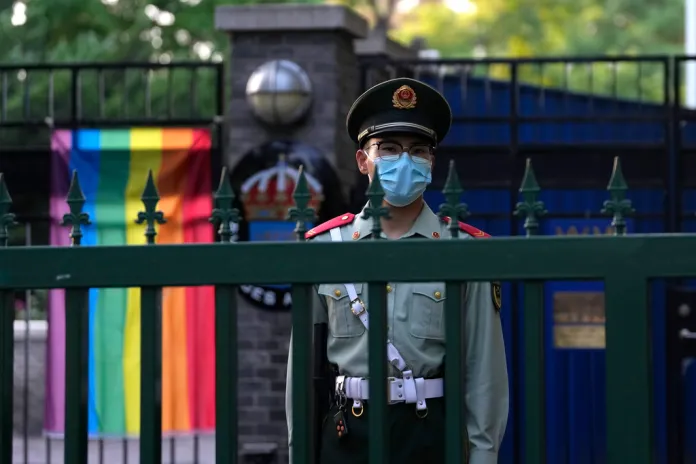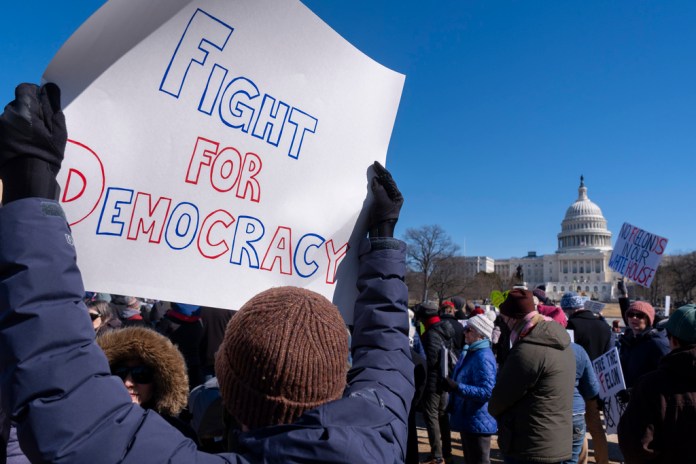LGBT Movement That Defamed Anita Bryant Vindicates Her Views
Anita Bryant, a prominent figure known for her Christian advocacy and as an orange juice spokesperson, passed away on December 16, 2024, at the age of 84. While her contributions to popular culture are frequently enough overshadowed by her reputation as an outspoken opponent of LGBTQ+ rights,her legacy is complex. Manny remember her primarily for her anti-gay activism, particularly the infamous incident in 1977 when a man threw a pie in her face during a press conference opposing legislation against discrimination based on sexual orientation.
Bryant led a campaign called “Save Our Children,” expressing fears that the gay community sought to recruit young people and arguing that homosexuality was an “abomination.” Her views, rooted in conservative Christian beliefs, sparked considerable backlash, leading to her ostracization from the entertainment industry and becoming a symbol of the religious right’s rise in American politics. In later years, she faced significant personal struggles, including mental health issues stemming from the backlash against her activism.
Despite the condemnation she faced, some contemporary reflections suggest that her views may not seem as shocking against the backdrop of current discussions about sexuality and morality. this outlook raises questions about the cultural shifts in attitudes towards LGBTQ+ rights and the evolving definitions of intolerance. Ultimately, Bryant’s life reflects a chapter of American history defined by the intersection of faith, politics, and sexuality.
Anita Bryant, Christian advocate, singer, and orange juice icon, died on Dec. 16, 2024, at 84. If you searched her name, however, all you would know about her is that she was an anti-gay bigot who once had a pie thrown in her face. Was she just a symbol of right-wing intolerance, Christian hatred against gay people, or a relic of the long-lost ideal of American social conservatism? Perhaps, knowing what we know today, she wasn’t as wrong as we might think.
In an Advocate article titled, “For Anita Bryant, there will be no orange juice in hell,” the author notes, “She had no legacy other than as someone who espoused and preached hate. That is all she will be remembered for.” He continues, “When I heard that she died, all I could think about was that Satan himself greeted her with a pie in the face upon her entrance to hell.”
The infamous pie incident occurred in October 1977 in Des Moines, Iowa, where she was giving a news conference opposing efforts to make it illegal to discriminate against homosexuals in hiring. She noted in the conference, “Because if you don’t flaunt it, who’s going to know you’re homosexual or not, you see? What they wanted to do was to flaunt it and to not lose their jobs because of it.”
As she explained that her group, Save Our Children, was not attempting to “do away” with homosexuals, and that efforts to speak on the issue had been met with protests, a man appeared and hit her in the face with a banana cream pie. The police immediately grabbed the man, but Bryant and her husband urged for the man to be let go and never pressed charges. Bryant famously prayed for the man, asking for God to deliver him from his “deviant lifestyle.”
This moment would define her political activism and become a constant point of mockery and celebration for the LGBT movement for decades. She is thought to have energized the very idea of a Christian political movement, launching the religious right and the efforts throughout the 1980s to reestablish moral standards across society. However, at that moment in time, being outspoken had a price. She lost work, was blacklisted, and became an icon of anti-gay hatred and intolerance. She would later admit to being so overwhelmed she considered taking her own life.
She argued that the gay community was interested in recruiting young people, and she championed what would become a staple of conservative opposition to the LGBT movement through Christian Biblical arguments. She referred to homosexuality as an “abomination” and supported therapy as a viable solution.
But as I read the Advocate article and many just like it that positioned her worldview as unacceptably hateful and as harmful in 1977 as it would be considered today, I couldn’t help but notice a video in the corner of the screen interviewing a queer music artist in fetish clothing surrounding by mostly naked men wearing dog masks and wonder if she was really as bigoted as she is accused of being.
In a May 21, 1977, article in The Toronto Star subtitled, “She loves orange juice and loathes homosexuals,” she is quoted saying, “America is being morally changed through drugs, pornography … the language, the subtle undermining of what a family is.” She continued, “Even in a public library you can get a stack of books two feet high that condone lesbians.” Interestingly, she notes, “[I]t might even get to the point where it [homosexuality] would be normal, and straight heterosexual life, as God instituted it, would be abnormal.”
Bryant argued, “But when it comes to the point of the local ordinance, that we have to hire flaunting homosexuals to teach our children, that’s where I draw the line. I mean people who are role models being able to stand up and say, ‘I’m a homosexual and I’m proud of it,’ implying to our children that they have another legitimate choice open to them. It’s not a civil rights issue at all.”
It is striking how relevant her words are today after watching dozens upon dozens of LGBT activist teachers quite literally flaunt their sexual and transgender identities with the express purpose of encouraging young kids to know they have many identity options to choose from.
From her point of view, as many conservatives and parents find themselves understanding today, what else could she think? In 1977, the gay community was mostly men engaging in public displays of sexual fetishism. A look back at the media gay men produced, as detailed in a fairly tame article titled, “Discovering the ‘Gay Lifestyle’ through 1970s Magazines,” any objective person would understand the concerns focusing on social morality and exposure to kids.
As we see today, the gay/queer activist movement chose sexual liberation as their focus. They wanted to normalize the idea of sexuality as itself a virtue and for youth to be exposed to this idea. The arguments surrounding gay civil rights seemed more out of spite than legitimate activism. Rather than sitting down and discussing their concerns, they protested and threw pies.
One thing all the articles today leave out, though, is what Bryant said about gay people, rather than homosexuality or the political movement. In the Toronto Star, she noted, “I’ve worked around homosexuals all my life. … I’ve known many of them to be warm, sensitive people, and I’d have no hesitation in having them around my children.” When she began praying for the man who assaulted her with a pie, who would go on to be a celebrated gay activist for decades, she and her husband said, “We love him,” with her husband repeating, “We forgive you and we love you. I don’t want this man touched or harmed in any way.”
When she began praying, she lost her words, crying — I am certain — from the weight of opposition and hatred that surrounded her and her work. You could feel her collapse for just a moment, and that moment has always haunted me: a real person in a real moment of genuine pain, faced with genuine hatred.
I don’t think Anita Bryant hated gay people. I don’t think her activism was bigoted or harmful, either. We may cringe at her language today, but what other choice did she have in the world the gay activists showed her and would continue to show everyone over the next decade? I think of the conservatives and parents today who seem to be right in the same moment she found herself in, fighting the same left-wing extremism and facing the same accusations and vitriol.
I think Anita Bryant deserves to be remembered for the work she did to stand up to the left-wing extremism she and her community faced, which we today call LGBT. I do think her legacy is more than what her opponents have written for her. It lives in those today combatting trans activism and sexually explicit materials for kids, child exploitation, the displacement of women and girls, and so many other battles one is accused of “hate” for fighting.
Chad Felix Greene is a senior contributor to The Federalist. He is the author of “Surviving Gender: My Journey Through Gender Dysphoria,” and is a social writer focusing on truth in media, conservative ideas and goals, and true equality under the law. You can follow him on Twitter @chadfelixg.
" Conservative News Daily does not always share or support the views and opinions expressed here; they are just those of the writer."




